"Brainstorming, for example, which has been practiced for decades in every boardroom and classroom across America, has been shown almost never to work. Brainstorming relies on the conceit that any idea is a good idea, and that feedback is the same as criticism which kills spontaneity. Both of these notions are completely false, and taken as the underpinnings of creativity, they yield surprisingly few and alarmingly thin suggestions in response to any group-think exercise."
Get Started for FREE
Sign up with Facebook Sign up with X
I don't have a Facebook or a X account
 Your new post is loading... Your new post is loading...
 Your new post is loading... Your new post is loading...

Mohini Lata's curator insight,
May 20, 2013 8:34 AM
As technology is becoming powerful and life changing how can we prepare students for the 21st century survival. The seven survival skills purposefully apply in a classroom. This links with Using Mathematical Higher order thinking - Critical Thinking and problem solving prepares students to see problems from different angles and formulate their own solutions. Collaboration encourages students to take on different roles. Agility and Adaptability – be willing to adapt to the changes around them.Initative and Entrepreneurship - always try. Effective Oral and written communication - how to speak confidently and clearly. Accessing and Analyzing Information- learn the difference between factual information and factual-sounding opinions. Curiosity and Imagination - teach them how to apply them creatively and purposefully. Technology has become an essential and important tool for education, helping teachers with their work and most importantly supporting the students. This also links with brief design technology and the digital technologies strand of the National Technologies Curriculum as students are taught how to use the technologies available to them.

Sophie Colas's comment,
February 25, 2013 7:37 AM
A ces qualités nécessaires, j'ajouterai la maturité, la générosité et la duplicité.

Sophie Colas's curator insight,
February 25, 2013 7:37 AM
A ces qualités nécessaires, j'ajouterai la maturité, la générosité et la duplicité. 
Sophie Colas's comment,
February 25, 2013 7:48 AM
Excusez-moi, toutes les qualités contraires à la duplicité : droiture et franchise. Oups

Randy D. Nichols's curator insight,
January 15, 2013 9:30 AM
A good list to help you start (or continue) bulding a "digital toolbox" for multimodal compositions. (I will steal some of these ideas for my delicious links!)

Channylt's curator insight,
April 7, 2014 10:56 AM
Great tips on how to facilitate collaborative learning. Learners that work collaborativley are engaged in their learning and have better learning outcomes. 
Marina Cousins's curator insight,
April 10, 2014 8:06 PM
I liked this article, as it highlighted to me the importance of collaborative learning is much better than individual learning. As I have mentioned several times, the learning and assessment that takes place within my workplace has a strong behaviourist foundation of learning and repeating key words and actions to pass an assessment (it is a very individual approach to learning).
Many of my colleagues view this experience of learning & assessment in a negative way. What are some of the ways to overcome this negative view of learning?
After reading this article, I will seriously consider using a collaborative learning style within my workplace (if I get the opportunity). The advantage of using real world problems or clinical incidents is that it offers the learner the opportunitity to improve their critical thinking skills and problem-solving ability.
Therefore, by using collaborative learning you can apply the following learning theories of cognitivism, constructivism, objectivism. 
Hazel Kuveya's curator insight,
April 10, 2014 9:22 PM
Keeping the groups at moderate levels will ensure an effective exchange of ideas and participation in all involved, I can echo the same statement that two heads are better than one. It is also interesting to learn that collaborative teams attain higher level thinking and preserve information for longer periods as compared to their individual counterparts., yes the use of technology makes collaborative learning manageable.

Rona Lewis's curator insight,
February 7, 2014 7:06 PM
Some good points about what stops the creative flow... |

Carmen Chavez, Ph.D.'s curator insight,
March 17, 2013 4:06 PM
VoiceThread, Wallwisher, Edmodo, ClassDojo, several tools to the entire PBL.

Victor Marín Navarro's curator insight,
March 16, 2013 8:59 AM
¿Cuáles son los elementos más importantes en un Proyecto de Aprendizaje? Aprendizaje significativo, necesidad de saber, un hilo conductor en forma de pregunta, aprendizaje activo por parte de los alumnos que implique elección, heramientas para el siglo XXI, descubrimiento e innovación, feed-back y revisión, presentación oral y pública del producto. 
Tamra Dollar's curator insight,
July 23, 2013 2:53 PM
PBL's begin with a driving question, one that is relevant to the learner and fosters engagement. Feedback is ongoing and essential for learner to happen.

RichardBulpittSchool 's curator insight,
November 4, 2014 11:44 PM
Collaboration for students on-line. Some motivational strategies. |



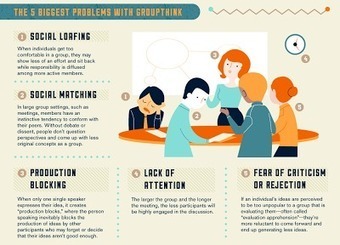


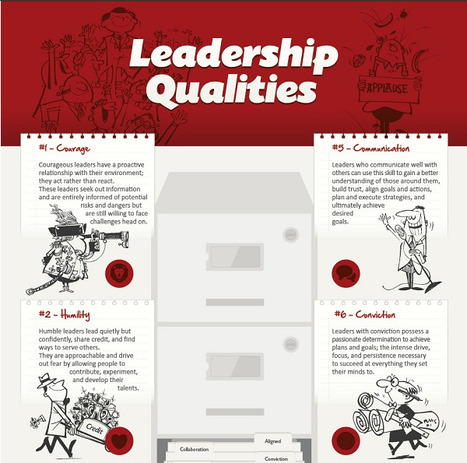

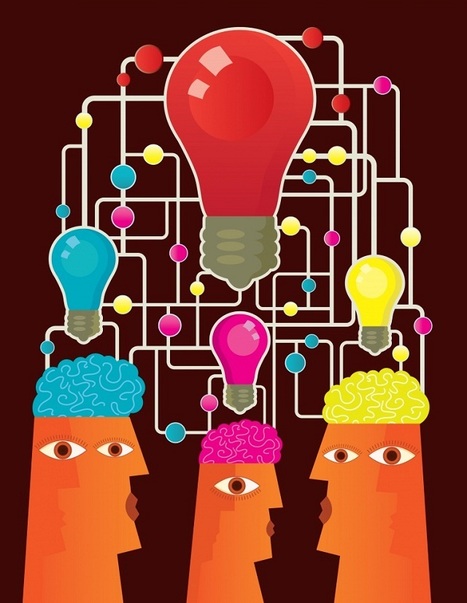


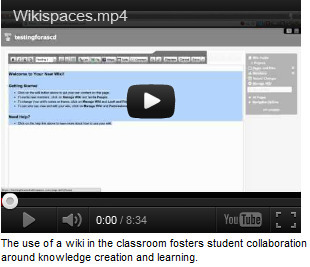
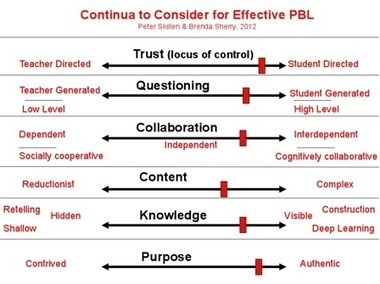

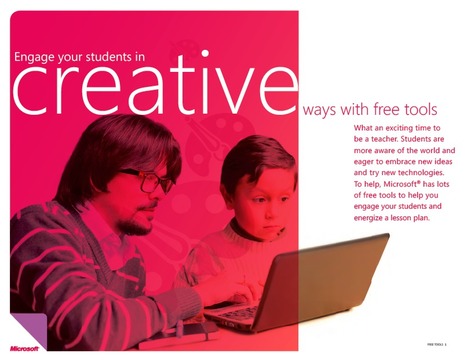
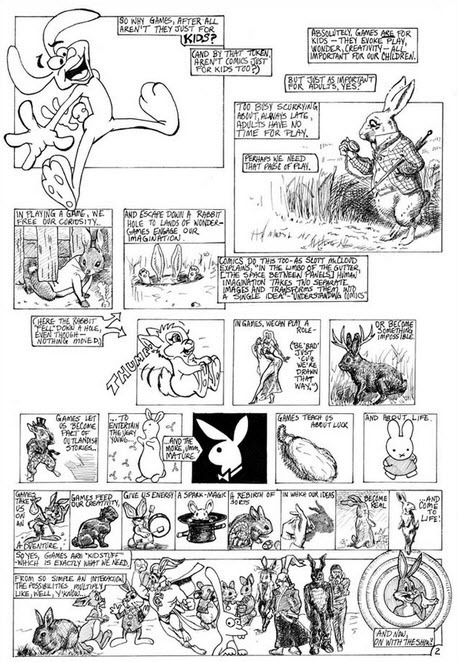

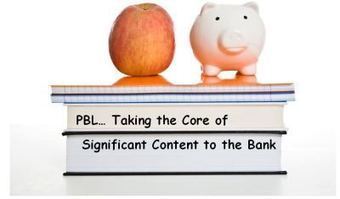

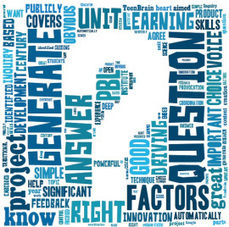


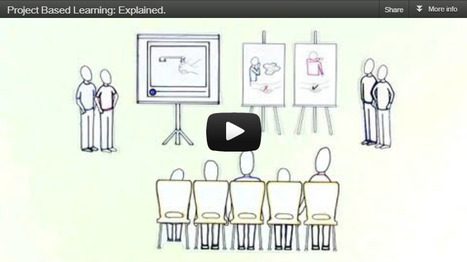











The SCAMPER technique can help. http://www.brainstorming.co.uk/tutorials/scampertutorial.html